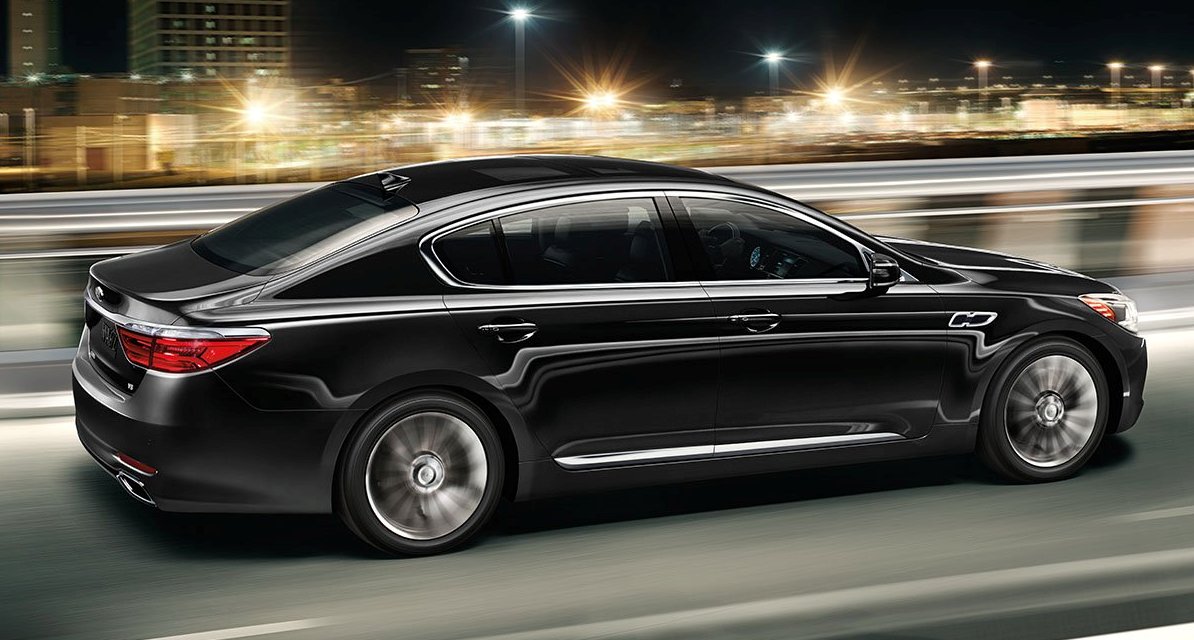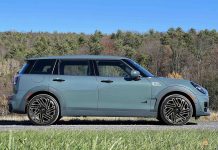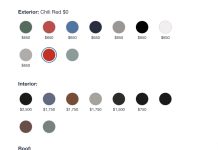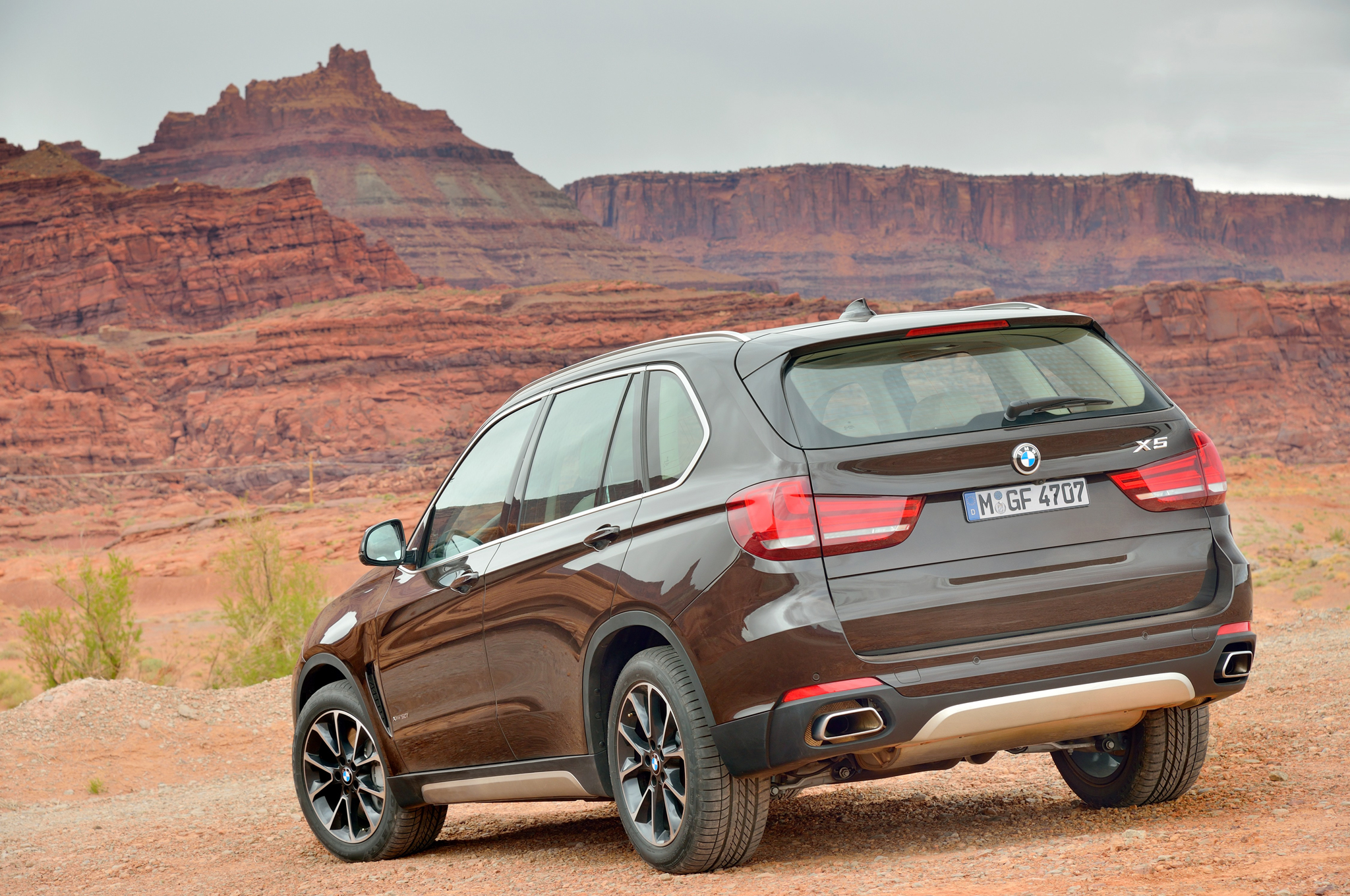Sometimes, a good idea doesn’t work twice.
The Hyundia-Kia conglomerate looked at the success Toyota has had with its Lexus luxury line – and in particular, the original (1989) Lexus LS 400 sedan – and figured what worked for Toyota ought to work just as well for them.
What Toyota did was (probably) buy an E-Class Mercedes, take it apart, then build one almost exactly like it using their parts – and sell it through their newly created Lexus outlets for a lot less than Mercedes charged for an E.
But you may have already spotted part of the problem.
The ’89 Lexus LS was not a Toyota.
Not in name – or dealership.
Sure, the car came from the same place – and used parts designed and made by Toyota engineers. But it said Lexus on the trunk, not Toyota.
People were willing to pay extra for that – especially when the Lexus cost thousands less than an equivalent BMW or Mercedes.
But the Kia K900 is still a Kia. Sold next to Kias, at Kia stores.
This is a problem, no matter how nice (and lower priced) a K900 is relative to a BMW or Mercedes.
Evidence of which is the discount pricing of the K900 for its second year on the market. It loses its formerly standard V8 engine (sister ship, the Hyundai Equus, still comes standard with a V8) and receives a $5,500 price cut.
This to spur sales, which haven’t been exactly gangbusters.
I think someone should tell Kia that it might be smarter policy to de-couple the K900 from Kia (and the Equus from Hyundai) rather than discount the car.
Pull a Lexus – and launch a new high-end car line that’s separate from the bread-and-butter line; one that is sold at high-end stores where customers who spend $50k-plus on a car do not have to rub elbows with people who spend $15k on a car.
Apparently, this is in the works – the new brand name will be Genesis – but they should have done it from the get-go instead of playing catch-up.
This is a nice car; more car (literally, I’ll explain) than an E Class Benz or a 5 Series BMW.
Or a Lexus LS460.
It deserves a better shot.
The Kia 900 is a medium-large, rear-wheel-drive luxury sedan.
It’s larger outside (and roomier inside) than a BMW 5 or Benz E sedan – and offers V8 power, which the Benz E sedan no longer does.
The BMW (and Lexus) do offer V8s – but for considerably more money.
However, the Benz and BMW both offer high-efficiency diesel engines, as well as all-wheel-drive, which the Kia doesn’t.
The badge is probably worth the $20k difference (up front) in down-the-road depreciation/resale value.
Prices for the K900 start at $49,000 for the Premium trim with the new-for-2016 V6 engine.
Last year, a 5.0 liter V8 was standard.
The upside here is the V6 is much stronger (311 hp) than the turbo four that’s standard in the BMW 5 (240 hp) and nearly as strong as the twin-turbo V6 (329 hp) that’s two steps up the options ladder in the Benz E.
A V8 Lux trim with the 5.0 liter/429 hp V8 stickers for $61,900 – vs. $72,530 for a 386 hp, 4.6 liter V8-equipped Lexus LS460.
WHAT’S NEW
A big price cut.
You can buy a K900 for under $50k now – which is $5,500 discounted vs. last year and thousands less than the base prices of rivals like the BMW 5 and Benz E… and tens of thousands less than the base price of a Lexus LS.
In addition, you can order a K900 with automated braking – and a hands-free trunk opener is standard equipment in all trims this year.
WHAT’S GOOD
Ultra-plush (and ultra-quiet) ride. A luxury car ride.
Roomier than its rivals. Almost as roomy as six-figure/top-of-the-line models like the BMW 7 and Mercedes S.
Powerful standard V6; even more powerful available V8.
WHAT’S NOT SO GOOD
Kia brand.
Hard to sell prime rib at McDonald’s.
Interior materials in the base V6 trim aren’t quite up to Lexus/Benz/BMW levels.
No AWD or diesel engine option.
The K900 has two unusual engines.
First, a V6 – unusual, because getting rare, even in the high-end stuff. Turbo fours are displacing displacement. The current BMW 5 comes standard with a tiny (for the size of the car) 2.0 liter four, a turbo breathing on it to make up for the lack of displacement. The Benz E comes standard with a 2.1 liter four cylinder turbo-diesel engine.
The Kia’s standard engine is a 3.8 liter V6, sans turbo. It is an engine much larger than the base engines in the BMW and the Benz.
Stronger, too.
It makes 311 hp vs. 240 for the BMW’s standard turbo four and 195 for the Benz’s little diesel (the little diesel does make big torque: 369 ft. lbs.)
The V6 is paired with an eight-speed automatic (Eco, Normal and Sport modes) and together the combo gets the big sled to 60 in 6.2 seconds, 149 on top and 17 city/26 highway at the pump.
It’s quicker than both the 528i (6.4 seconds to 60) and the diesel-powered E-Class (7.6 seconds) but it’s also thirstier than either. The 528i posts a very impressive 23 city, 34 highway while the Benz E250 delivers a class-best 28 city/42 highway – the latter figure better than most current compact economy cars manage.
The step-up engine in the Kia is a 5.0 liter, 429 hp V8.
Like sixes, eights are becoming fairly rare – even at this level.
You can still get one in the BMW 5 – but it’s the third-up engine (after the base 2.0 and the step-up 3.0 liter six) and the base price for this one ($66,300) is $4,400 higher than the price tag of the V8 K900. Benz only offers V8 power in the ultra-performance AMG version of the E-Class sedan, the E63 AMG.
Its starting price is $101,700.
Interestingly, the 2017 E Class will – at least initially – only offer the 2.0 liter four, with a twin-turbo six and hybrid on deck for later. The diesel may not return at all – another victim of the EPA’s emissions fatwas and the VW “cheating” debacle, which has really done a job on public perceptions of diesel engines.
No surprise, the V8-powered K900’s gas mileage is ’69 Chrysler Newport 440-ish: 15 city, 23 highway.
But this is not much worse than the V8-powered BMW 550i’s 17 city, 25 highway – and within respectable reach of the twin-turbo V6 Benz E400’s 20 city, 29 highway. Keep in mind how much more you will pay for the car as opposed to gas.
The aging Lexus LS460 – past-due for a major update – is the only other car in this class besides the K900 that has a V8 and doesn’t have a turbocharger. It only has 386 hp, however (vs. 429 for the Kia). And it’s fairly slow: 0-60 in just over six seconds, about the same as the V6 K900 and four cylinder 5 Series while being much more expensive ($10k-plus more to start than the V8 K900) and – no suprise – also as thirsty as a 440-powered ’69 Chrysler Newport: 16 city, 24 highway.
With the optional AWD system (which Kia doesn’t offer) the Lexus loses another 1 MPG on the highway.
This Kia is a luxury sedan.
Not a “luxury-sport “sedan.
That means it is soft-riding and crypt-quiet. More so than cars like the BMW 5 and Benz E , both of which are “luxury-sport”sedans.
Which means they also have cornering chops, which the big Kia doesn’t worry about much.
That doesn’t mean its tires squeal and its body lurches and hubcaps go flying if you enter a curve posted 35 MPH at 36 MPH. You can take that curve at 45 and none of those things will happen.
What it does mean is one-finger power steering through those curves that’s not as “telegraphic” and “communicative” as the BMW’s and no engine snarl reaching you as you exit. If there is “body roll,” it’s the sort you’d experience in a stateroom onboard the Royal Caribbean Harmony of the Seas.
The Car Press faults the K900 because it doesn’t track like a 911Turbo through S cones set up on a test track. This is the reason for the “luxury sport” mania that grips the industry, This demented notion that every car must be 911-like in its reflexes else it’s somehow inadequate. It is why even Camrys look like vehicular codpieces, all puffy and belligerent.
There is nothing wrong with “sporty.” But does every car have to be “sporty”?
If you don’t think so, you may prefer this one.
There isn’t much difference in the feel between a BMW 5 and a Benz E. But there is a real difference in feel between those two and the Kia.
The Lexus LS seems to have been the template (just as Lexus targeted the E Benz back in the late 1980s as the template for what became the original LS400). It is also not a “luxury-sport” sedan – the marketing nonsense notwithstanding. It is also incredibly quiet and refuge-like inside, with one-finger power steering and better seats than probably any in your house.
It also costs $22,000 more to start vs. the V6 K900 – and that’s where the Kia makes its most compelling case. The V8 is hearty, but 311 hp is plenty. For a car like this especially.
Some perspective: The 2016 K900 V6 runs to 60 two seconds quicker than the original ’89 V8 Lexus LS400 did and is just as quick as the current V8 LS460.
The V8 K900 has its charms, of course. But try the V6. I doubt you will be disappointed.
The eight-speed automatic has three driver-selectable modes but it’s hard to discern much difference between Eco (hilarious) the default Normal and Sport mode. In the latter, overdrive is disengaged to keep the RPMs up, but the engine is so quiet and the gear changes so not-aggressive that you really have to be paying close attention to things like the tachometer’s slight variances to be aware that anything has changed.
Either engine has the passing power a car in this class ought to come standard with. Arguably, neither the BMW 5 nor the Benz E do. Their optional engines do. But the base BMW 528i is susceptible to being outrun by Camrys and Accords that cost $25k less while the diesel-powered Benz is outgunned by Camrys and Accords that cost $25k less. Sure, the E250 diesel gets fantastic mileage. But is that really the top consideration in a $50k-plus luxury-sport sedan?
The others are busy trying to be all kinds of different things. Luxurious – and sporty.
Economical, too.
The K900 is more single-minded. It is probably what big American rollers like the Cadillac Sedan de Ville and Olds 98 of the ‘70s might have evolved into… had the automotive press not managed to make luxury (sans “sport”) an almost dirty word.
Feed them fish heads.
Sure, it’s derivative. So was the ’89 Lexus LS400, which shamelessly ripped off the shape and look of the same era Mercedes E. Even to the extent of almost verbatim rip-off of the E’s wheels. No one (except Mercedes) cared. People bought them (LS400s) like the half-price “Prada” handbags you can pick up on the streets of New York City.
Well, payback is hell.
Kia shamelessly recreated the shape of the LS460 – even to the extent of blatantly ripping off the chrome accent strip on the lower rocker panels – with some Jaguar-esque hints (like he mesh grille) and BMW themes (look at the rear quarter glass) thrown in to the mix.
Even greater is the car’s size – and spaciousness.
It is a much larger car (200.6 inches end to end) than either the Mercedes E (192.1 inches) or the BMW 5 (193.4 inches) and a larger car than even the Lexus LS460 (200 inches) which – price-wise – is more in the S Class Benz and 7 Series BMW league.
The K900 falls somewhere in between the Lexus LS and the BMW 7 and the Benz S, at least in terms of its impressive footprint and its equally impressive interior roominess.
You might be surprised to discover that the BMW 5 and Benz E are less roomy than mere Camrys and Accords.
As the Kingfish used to say, lookee here:
A Camry has 41.6 inches of legroom up front and 38.9 in the second row. A Benz E Class sedan has 41.3 inches of legroom up front and 35.8 in the back. A BMW 5 has 41.4 inches up front and 35.3 inches in the rear. Even the Lexus LS460 – which has lots of legroom up front (43.7 inches) only has Accord (and less-than-Camry) legroom in back (35.8 inches).
And the K900?
How about 45.9 inches of legroom up front… and 38.2 inches in the second row?
To get luxury sedan rear seat legroom in a Mercedes or BMW, you have to step up to an S Class or a 7 Series (respectively.) And it is a big step up. The S-Class starts at $95,650. The BMW 7 at $81,300.
And PS: Both the S550 and the BMW 740i (and all their even more expensive iterations) only have 41.4 inches (each) of front seat legroom. They do have limo-like backseat legroom (43.1 inches and 44.4 inches, respectively) but you’re talking about – literally – tens of thousands of dollars per extra inch vs. the Kia.
The Kia hasn’t got everything.
Among the not-there’s – at least not yet: A rear seat DVD entertainment system, tray tables and footrests. These may be on deck for 2017 (see pic).
And you can find such things right now in cars like the Benz S and BMW 7.
There is always a price to pay – especially when you are not paying full price.
But consider what you do get: Extra-large (9.2 inch) LCD display screen, a 12.3 inch LCD main gauge cluster, navigation, three-zone climate control, panorama sunroof, a standard 14-speaker audio rig (17 speaker, 900 watt rig available), power tilt and telescoping steering wheel, eight-way power (and heated) front seats, with Benz-like fine controls mounted on the door panels, hands-free power trunk opener (new this year), power folding/auto-dimming mirrors and – of course – real wood and leather trim. The A and B and C pillars are also covered in crushed velour as nice as the “Alcantara” stuff used in the Name Brand cars.
The wood and leather in the base V6 is admittedly not quite as high-rent looking (though the available Quilted Nappa leather is top drawer) and there are some Kia-ish plastic bits here and there … but (again) consider the price.
And note that the base V6 comes standard with almost everything except the V8 (and the Quilted Nappa leather).
It even has “hydrophobic” (water repelling) side glass.
The V8 version adds mechanical stuff like 19 inch wheels (18s are standard with the V6) and a few additional “safety” systems (blind spot/lane departure warning, rear cross-traffic alert) but in terms of amenities, the base V6 has 90 percent of the goodies.
And more to the point, more of them than the price-equivalent versions of rivals like the BMW 5 and Benz E.
2016 is the second year for Kia’s first attempt at Lexusing the name brand luxury marques… without benefit of a luxury marque.
This – rather than the car itself – has been a problem for Kia, because status-consciousness is as critical a factor in this class as the merits of the car. This isn’t merely snobbery. Status affects depreciation, which affects leasing/residual value in particular. And leasing is a big part of selling high-end cars, which tend to get turned over every three or four years, if not sooner. A Lexus hold its value exceptionally well and so does a BMW and a Benz.
A Kia not so much.
But while depreciation is an issue, so is being able to haggle.
How much under sticker do you suppose you’ll stand a chance of paying for a new Benz or BMW?
How about a Kia?
EPautos.com depends on you to keep the wheels turning! The control freaks (Clovers) hate us. Goo-guhl blackballed us.
Will you help us?
EPautos stickers – new design, larger and magnetic! – are free to those who send in $10 or more to support the site.
Our donate button is here.
If you prefer not to use PayPal, our mailing address is:
EPautos
721 Hummingbird Lane SE
Copper Hill, VA 24079






















I might buy one of these babies — used — when my current Toyota maybe starts having trouble. If you’re buying it used, the higher depreciation is a feature instead of a bug.
Which might mean we waiting another decade, since my car is still bulletproof with over 100K on it.
But, this is precisely the kind of car I go for — luxurious, but not paying a lot extra for the status symbol hood ornament and name.
I haven’t sat in one yet, but everything I’ve read is that the K900/Equus is a very nice car. They’re still not in that last 1% of 1% that makes a truly luxurious ride, but they’re really close.
They need to address that, no question. But more pressingly, like you said, the purchaser of one of these cars is not going to want to have a seat in a service department waiting room with folding chairs, Oprah on the TV, and linoleum tile.
If they decide to start a separate brand, “Genesis” as a name isn’t bad. But they need to follow Lexus’ lead on this and keep the “other brand” cars as far away as possible. Don’t be like Acura where the Honda relationship is obvious. They need to have unique sheetmetal, and an unquestionably perfect ownership experience.
I haven’t ridden in an Equus yet, but I rented a Genesis sedan a few years ago and loved it.
Hi Jim,
It’s a nice big roller – like they used to make ’em (only better)…. Now if only one could nix all the “safety” crap!
Genesis is a perfect name for their separate, up market line.
Why do I suspect that the Koreans will not have much talent for creating that “luxury experience” at their Genesis dealerships?
They better hire the best consultants money can buy. This will be real test, to prove whether or not they have major league aspirations. We’ll see just how committed they are. Especially as the globe proceeds into the next mega-recession.
Two years ago, I would have bet against them. Wouldn’t now. Still, I think their odds are 50/50…..at best.
Hi Mike,
I’ve got a buddy who has an Equus – and he loves it. He used to drive an S Benz. But he doesn’t like having to go to the Hyundai store for service….
Yeah, I know how he feels – I like to pay as much as humanly possible for servicing my car!
Nice review. I’ve driven the Genesis and really liked it. Big, rear drive cars are becoming almost as rare as manual transmissions. I hope they can make a go of it. There’s something appealing about not driving the high line names.
Thanks, Yeti!
I also wish large/RWD (and V8) cars were still available for the average person. The last of these – the Charger (and Chrysler 300) – won’t be available much longer. Or they will be priced much higher, to offset the “gas guzzler” fines. Which means they’ll be too expensive for the average person.
Toyota, Honda, and Nissan broke into the U.S. market as the Big Three floundered with quality control and reliability issues. The luxury market was ripe for picking. No longer, Japan and Europe have saturated that market. Hyundai and Kia will have a hard time moving these high end models along side the budget brethren. A few will upgrade when their Sonata lease expires but not enough to break into the American market in a meaningful percentage. Too many players right now with polished credentials. Image.